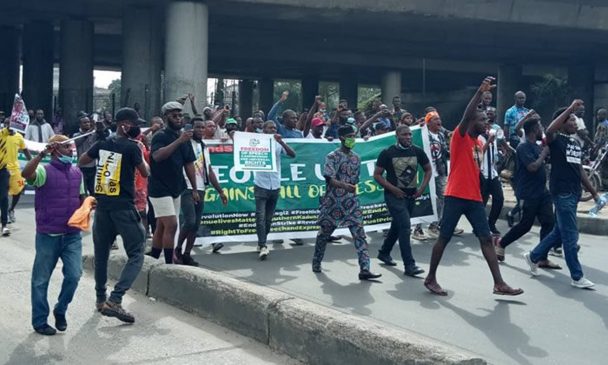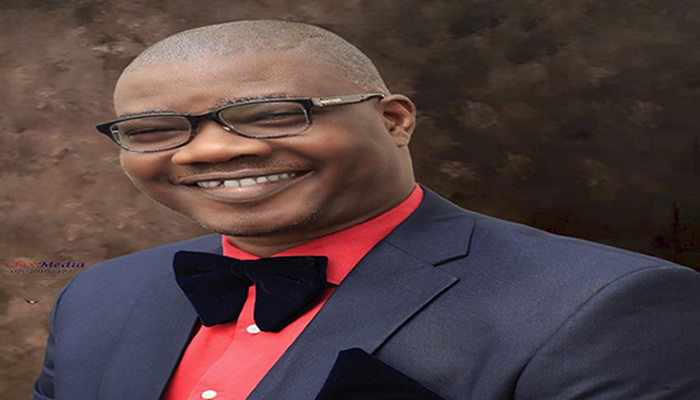Photo caption: Jide Ojo
By Jide Ojo
It’s 65 years of Nigeria’s independence and 32 years after the watershed and epochal June 12 presidential election. The landmark election was won by Bashorun MKO Abiola, who was also the Aare-Ona-Kakanfo of Yorubaland. Unfortunately, that election was annulled by the military junta of Ibrahim Babangida. Tomorrow, June 12, has been declared Democracy Day in Nigeria and will be observed as a public holiday. The winner of that election has been posthumously conferred with the highest title of Grand Commander of the Federal Republic of Nigeria. For the benefit of Millennials and Gen Zs, who were not born at that time, the events leading to and after that election are worth recalling the same way I did on this page on June 12, 2024.
On August 27, 1985, General Ibrahim Babangida overthrew the Head of State, General Muhammadu Buhari. Instead of answering Head of State, he decided to call himself Military President, which is an aberration. Soon after seizing power, he inaugurated a Dr Samuel Cookey-led 17-member Nigerian Political Bureau on January 13, 1986. According to Wikipedia, the bureau was set up to conduct a national debate on the political future of Nigeria and was charged, among other things, to “review Nigeria’s political history and identify the basic problems which have led to our failure in the past and suggest ways of resolving and coping with these problems”.
He thereafter released an elongated transition to a civil rule timetable. Initially, the transition was supposed to end in October 1990, but IBB, as Babangida was fondly called, shifted it to 1993. He banned old politicians and called for a new breed. He established the Centre for Democratic Studies and made Prof. Omo Omoruyi the pioneer chairman. The centre was to train politicians in a democratic ethos. He set up the National Electoral Commission, headed by Prof. Humphrey Nwosu. IBB established a two-party system for Nigeria. He formed the National Republican Convention and the Social Democratic Party. The NRC elected Chief Tom Ikimi as its national chairman, while the SDP elected Chief Tony Anineh as its national chairman. Both chairmen are from Edo State. Babangida did not just establish the political parties; he built party secretariats for them across the country and provided grants to run the parties.
Elections for local governments, state Houses of Assembly and governorship positions were held at different times between 1991 and 1992. The transition was to end with the presidential election on June 12, 1993. However, events leading up to that day were ominous. A group called the Association for Better Nigeria, led by Abimbola Davies with Chief Arthur Nzeribe as a promoter, went to court to stop the election from holding. On June 10, 1993, a Federal Capital Territory High Court Judge, Justice Bassey Ikpeme, ordered NEC not to conduct the June 12, 1993 election based on the prayers of Nzeribe. However, the election was held as there was already a decree which resulted in the ouster of any court ruling stopping the poll.

Photo caption: June 12 protesters in 2021
There were some things which are novel in the June 12, 1993 poll. NEC used what it termed Option A4 voting technique (open ballot system, where members in a party primary queued behind the aspirants or their pictures). This was the method adopted by NEC for the presidential primaries of the two political parties. The election itself was, however, conducted with ballot papers in what was termed the modified open ballot system.
In a transcribed speech of IBB annulling the election, which was published by Daily Post on June 12, 2017, it stated inter alia, “Apart from the tremendous negative use of money during the party primaries and presidential election, there were moral issues which were also overlooked by the Defence and National Security Council. There were cases of documented and confirmed conflict of interest between the government and both presidential candidates, which would compromise their positions and responsibilities were they to become president….It is true that the presidential election was generally seen to be free, fair and peaceful. However, there was a huge array of electoral malpractices virtually in all the states of the federation before the actual voting began. There were authenticated reports of electoral malpractices against party agents, officials of NEC and also some members of the electorate. If all of these were clear violations of the electoral law, there were proofs of manipulations through offer and acceptance of money and other forms of inducement against officials of NEC and members of the electorate.”
I was an undergraduate student at the University of Lagos when the June 12, 1993 election was held and subsequently annulled. I participated in the civil protests to make the military junta rescind that decision. In fact, I wrote to air my view on OGBC FM Mailbag 2084, which was a popular programme on the Ogun State Broadcasting Corporation. The programme was then anchored by Busayo Olaifa, Babakura Abajato (he later became the Commissioner for Information in Borno State), Toun Sogbesan and the like. It used to be held at 6pm on Friday. Little wonder the programme was rested after the June 12 debacle.
The agitation to disannul the June 12 election led to the killing and maiming of many protesters. Indeed, most, if not all tertiary institutions in the six South-West states of Lagos, Ogun, Oyo, Ekiti, Osun and Ondo were shut down indefinitely. Workers under the Nigeria Labour Congress also embarked on an indefinite strike. Some newspapers, including The PUNCH and broadcast stations, were proscribed.
Some journalists were arrested and clamped into detention without trial, while others had to go into exile. The National Democratic Coalition, popularly called NADECO, was formed, and the incumbent President Bola Tinubu was a prominent member. Pro-democracy activists floated Radio Kudirat. The struggle eventually consumed the winner of the election, Chief MKO Abiola, who died in detention after he was arrested for declaring himself president at Epetedo in Lagos. His wife, Kudirat Abiola, was assassinated. Another person martyred by the June 12 struggle was Pa. Alfred Rewane.
This year marks the 32nd anniversary of the June 12, 1993 election. How have we fared in our democratic journey? Unfortunately, our electoral process seems not to be throwing up credible leaders due to the manipulative tendencies of the political class. Money and violence are the twin evils beleaguering our elections now. To contest elections in Nigeria, you must have a war chest (money in millions and billions). If you don’t have it, you either sell off your property to raise the gargantuan amount needed or look for a godfather to bankroll your political aspiration. Many of the godfathers are shylocks who will squeeze you dry. (If in doubt, ask former Governor of Anambra State, Dr Chris Ngige).
Because of the huge financial outlay needed to contest elections, contestants, therefore, don’t want to take chances and do not want to see politics as a sport. They go for broke. They want to win at all costs. Failure is not an option. Thus, they induce voters and unleash violence on the supporters of their opponents. Indeed, assassinating political opponents is a game for them. That was what happened in Enugu State ahead of the February 25, 2023 national elections when unknown gunmen killed the Labour Party senatorial candidate for Enugu East District, Oyibo Chukwu, alongside five supporters who were inside his vehicle. The killing took place three days before the senatorial election.
June 12, 1993, was symbolic because it was deemed the freest and fairest poll, though not without flaws. I beseech the Nigerian political elite to allow for credible elections which will see not only moneybags but people of ideas and integrity being voted into political offices. The politics of a winner-takes-all, zero-sum game is dangerous and counterproductive. It’s why elections have become a mere routine without delivering the dividends of democracy or good governance.
X: @jideojong



